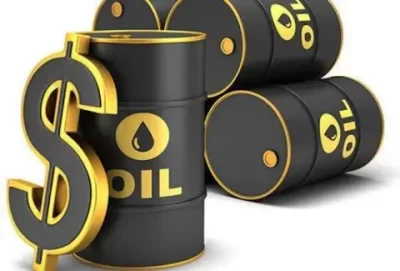With 50% Increase, Oil Price Records Biggest Annual Gain Since 2009
Oil prices fell at the weekend but still posted the biggest annual gains since 2009, spurred by the global economic recovery from the COVID-19 pandemic and producers’ restraint.
Brent, Nigeria’s oil benchmark, ended the year up 50.5 per cent, its biggest gain in years, while West Texas Intermediate (WTI) posted a 55.5 per cent gain, the strongest performance for the benchmark contract since 2009, when prices soared more than 70 per cent.
Both contracts touched their 2021 peak in October, with Brent at $86.70 a barrel, the highest since 2018, and WTI at $85.41 a barrel, the highest since 2014.
But during the weekend, Brent crude futures settled down $1.75, or 2.2 per cent, at $77.78 a barrel as WTI crude futures dropped $1.78, or 2.31 per cent, to $75.21 a barrel.
The oil market continues to be highly reactive to developments on the pandemic front, indicating that the industry is not out of the woods yet, but now close to pre-pandemic demand levels.
A Reuters survey of 35 economists and analysts forecast Brent crude would average $73.57 a barrel in 2022, about two per cent lower than the $75.33 consensus in November.
Easing production outages in Nigeria and Ecuador also weighed on prices earlier in the week as Nigeria struggled to ramp up production after a disruptive force majeure declared by Shell, amid ageing upstream infrastructure and sabotage.
Nigeria, going by the quota allocated by the Organisation of Petroleum Exporting Countries (OPEC) is expected to produce 1.683 million bpd in January 2022, but meeting that target would be an uphill task as it has maintained an average of 1.25 million barrels in the last few months.
However, the country appeared to have done a bit better going by the latest data for November, adding over 47,000 barrels per day in that month.
The unimpressive production figures have also negatively impacted the NNPC’s remittances to the federation account and by extension the monies shared by the federal, state and local governments this year.
For example, with a paltry N10.54 billion in November, the Nigerian National Petroleum Company (NNPC) was only able to remit 8.5 per cent of its projected N122.7 billion to the federation account, a joint pool of funds shared by the country’s three tiers of government.
The national oil company has blamed the inability to restart the oil wells shut down in 2020 when OPEC compelled member countries to cut production for the declining production.
But with oil hovering near $80, OPEC, Russia and allies, together called OPEC+, will probably stick to their plan to add 400,000 barrels per day of supply in February when they meet on January 4, four sources told Reuters.
The sources added that this is set to happen as demand concerns raised by the Omicron coronavirus variant eased and oil prices recover.
The alliance at its last meeting on December 2 stuck to the plan for a 400,000 barrels per day rise in January despite fears that a US release from crude reserves and Omicron would lead to an oil-price rout.
OPEC ministers are also set to discuss who will become the group’s new secretary-general to replace Nigeria’s Mohammad Barkindo, who is scheduled to leave at the end of July. Kuwait’s candidate, Mr Haitham al-Ghais, tipped to take over has widespread support, sources have said.
Russian Deputy Prime Minister Alexander Novak said last Wednesday OPEC+ has resisted calls from Washington to boost output further because it wants to provide the market with clear guidance and not deviate from policy.


